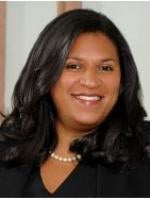Although nursing homes appreciate the recent release of $4.9 billion in financial assistance, the bullseye on them continues growing. Troubles that preceded the COVID-19 crisis have gotten worse for facilities caring for high risk seniors. They face scrutiny over death rates from COVID-19, as well as how they will use relief money.
Financial Assistance
On May 22, 2020, the Department of Health and Human Services (HHS) announced that it is sending $50,000 to each skilled nursing facility (SNF) across the country, plus another $2,500 for each bed in the facility. HHS recognizes the payments help support the “pivotal role” that nursing homes play in providing for our vulnerable seniors.
This relief comes amid a growing fiscal stress for the industry. As HHS describes the situation:
Since the beginning of 2020, SNFs have experienced up to a 6 percent decline in their patient population as current and potential residents choose other care settings, or as current residents pass away.
This contraction of the patient population is just one of the problems facing the industry.
Investigation
As reported in a prior post, the Department of Justice launched a National Nursing Home Initiative earlier this year designed to “bring to justice” owners and operators “who put profits before patients.” Despite acknowledging many “terrific facilities” managed by “wonderful people,” the Attorney General placed a bullseye on the back of every nursing home in the country by announcing this initiative personally.
COVID-19 Crisis
As the Centers for Medicare and Medicaid Services (CMS) correctly recognizes, the unfortunate truth is that
Nursing homes have been ground zero for COVID-19.
The virus affects seniors, especially those with underlying heath conditions, more than the population at large. Accordingly, the current crisis adds to challenges facing the industry.
On May 1, CMS required nursing homes to report COVID-19 deaths directly to the Center for Disease Control. Although the exact numbers are not public, The New York Times reported that as many as one-third of fatalities in the US occurred in long-term care facilities. Further, on June 1, CMS provided guidance directing states to complete surveying every nursing home for infection control by July 31, 2020. CMS plans enforcement action against facilities that do not comply as required.
Increased costs related to the virus crisis contribute to the prediction of a “grim” future for nursing homes.
Penalties for Failed Infection Control
The focus on infection control is both punitive and supportive. On the punitive side, CMS announced civil monetary penalties (CMPs) of at least $20,000 per day for current non-compliance that reveals Infection Control Deficiencies are widespread. On the other hand, CMS offers assistance from Quality Improvement Organizations “to focus on areas of immediate need as well as urgent health priorities.”
Financial Scrutiny
As if all this were not enough, the $4.9 billion in financial assistance is certain to increase the size of the bullseye on nursing homes. Prosecutors will use the terms and conditions linked to the relief money as the basis to investigate how the money is used. From our vantage as former prosecutors, we describe in a prior post how such investigations could proceed.
Further, CMS explicitly shut off a possible source of revenue when it announced on June 11 that nursing homes are “prohibited” from seizing economic impact payments (stimulus checks) authorized under the CARES Act. Violators could be subject to enforcement actions including termination from Medicare and Medicaid.
What’s a SNF to do?
Faced with this situation, owners and operators of nursing homes must prepare for financial scrutiny. The best way forward is to embrace scrutiny by ensuring that an effective compliance program exists regarding the money. For example,
-
Scrutinize the terms and conditions that must be met in order to qualify for assistance under the CARES Act. Prosecutors will hold you accountable for every word of the terms and conditions. Before taking the money, you should know what is expected and be willing to abide by the requirements.
-
Document that you qualify for the money. When prosecutors come looking, they will want proof; and the best kind is contemporaneous record keeping. You will be grateful later for the time spent documenting how you qualify for assistance.
-
Prepare now to prove you handled the money correctly – even if extra tracking may be necessary. When restrictions limit how money can be used, it is best to put that money in a separate account. Despite the bother, it will prove much easier than trying to parse through a general ledger years after the fact when memories have faded and employees may be gone.
-
Investigate and resolve complaints. Misuse of CARES Act money can lead to criminal charges as well as treble damages under the False Claims Act. If a potential whistleblower offers you the opportunity to fix things by making a complaint, do not miss the chance.






 />i
/>i

